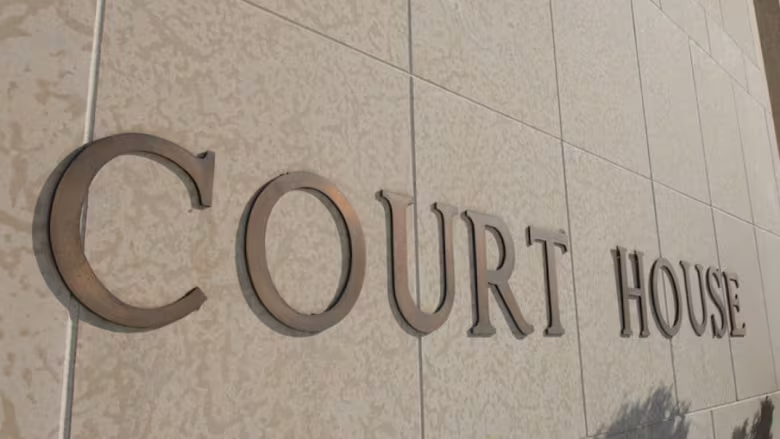1st day of latest battle over Sask. pronoun consent law concludes at Court of Appeal
Appeal pits provincial government against 2SLGBTQ+ rights groups

Saskatchewan's highest court is considering appeal arguments from the Saskatchewan government and 2SLGBTQ+ organizations concerning the province's pronoun consent law.
Two days have been set aside for the hearing at the Court of Appeal in Regina.
The Parents' Bill of Rights, a law passed by the provincial government last October, requires parental consent before a child under the age of 16 can use a different gender-related name or pronoun at school.
Court of King's Bench Justice Michael Megaw ruled in favour of UR Pride, a 2SLGBTQ+ group in Regina, in a Feb. 16 decision allowing it to make its case on the constitutionality of the new pronoun rules.
That's despite the fact that in creating the law, the province invoked the notwithstanding clause to sidestep the Charter of Rights and Freedoms.
This week's hearing has so far hinged on what jurisdiction the court has in an issue already decided by using the clause.
Appellant counsel for the Saskatchewan government is contesting Megaw's decisions and arguing that the justice system does not have the authority to make conclusive decisions or direct a resolution in the face of the notwithstanding clause.
Adam Goldenberg, co-counsel for UR Pride, is arguing that the clause does not impose constraints on the court's jurisdiction because it can still consider if the law is constitutional.
He's arguing that the law is unconstitutional under Section 7 of the Charter of Rights and Freedoms, the right to life, liberty and security, Section 12, the right to not be subjected to unusual treatment or punishment, and Section 15, the right to equality under the law.
He argues that the law unreasonably limits Sections 7 and 15 of the Charter. He also said the section of the Education Act requires the child to be "outed" to their parents, leaving that personal and intimate choice partially in the hands of the state.

The appellants are also arguing that the court's intervention in a constitutionally-established process would undermine the legislative decision and could lead the public to believe that its decision is unconstitutional, despite the clause being written into the Canadian Charter of Rights and Freedoms.
Milad Alishahi, co-counsel for the Saskatchewan government, said that the province is not evading scrutiny with the clause, just shifting it from judicial accountability to democratic accountability. Likewise, his co-counsel Deron Kuski, argued that the decision should be made at the ballot box, not by the courts.
In that same Feb. 16 ruling being appealed, Megaw also allowed UR Pride to alter its legal action to target the new law, instead of the policy that preceded it, and amend the challenge to say that the law violates Section 12 of the Charter.
The appellants argued that amendment should be struck as an abuse of process, stating their motives are to hold the government to account and inform the electorate, but that those are political and not judicial motives.
Goldenberg argues Charter claims are used to hold the government accountable in issues of unconstitutionality and, additionally, it's not an abuse of process because it does not change the intent of the case, which is to consider if the law is unconstitutional.
Egale Canada, which is representing UR Pride, says the case will deal with the role the court should play once a government has decided to violate the rights of a portion of its population.
"It's disappointing to hear the government taking the position that challenging the constitutionality of legislation that targets vulnerable young people is somehow abusive," said Bennett Jensen, the legal director of Egale Canada.
"Our position, UR Pride's position, is that the court retains an important role when the government chooses to violate the Charter of Rights of young people, or any part of the population."
Saskatchewan Attorney General Bronwyn Eyre says the government will use every tool at its disposal to protect parental rights and will appeal all the way to the Supreme Court if necessary.
The case has generated interest across Canada. In July, the Court of Appeal granted 11 interveners status to make arguments for, or against, the Saskatchewan government's appeal, including the New Brunswick and Alberta Attorneys General.
Goldenberg will continue his arguments on Tuesday before the Government of Saskatchewan has an opportunity to respond.
With files from Pratyush Dayal, Alexander Quon, Alexandre Silberman and Shlok Talati
